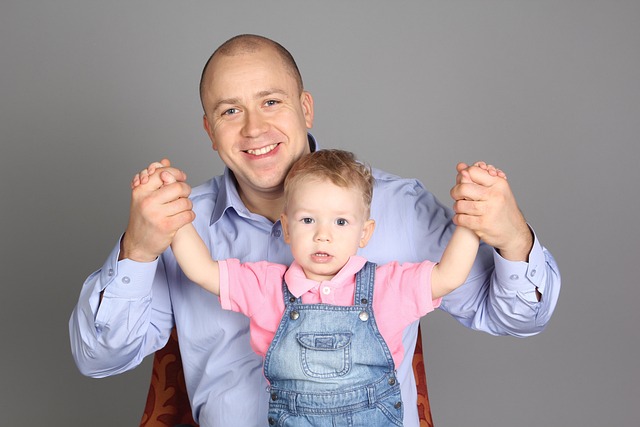The child welfare system, governed by a strict legal framework, aims to protect children while balancing parental rights. Legal representation is key, with specialized attorneys guiding parents through complex regulations, advocating for their rights, and minimizing trauma from potential removals. Parents should educate themselves about local laws, connect with advocacy groups, and maintain open communication with their legal representatives. Challenges include jargon, rules, and cultural barriers, leading to stress and separation. To improve this, strategies focus on accessible legal aid, community support, and training for caseworkers, ensuring both parental rights protection and child well-being.
“The child welfare system, designed to safeguard vulnerable young lives, operates within a complex legal framework. This intricate network of protections aims to balance the well-being of children with the preservation of familial bonds. This article explores the fundamental aspects of navigating the child welfare system, focusing on parental rights and legal representation.
We delve into the rights and responsibilities of both parents and children, dissecting the legal protections in place. Understanding these mechanisms is crucial for strengthening parental rights protection and ensuring effective advocacy within this intricate landscape.”
- Understanding the Child Welfare System and Its Role in Protecting Children
- The Legal Framework: Rights and Protections for Both Children and Parents
- Importance of Legal Representation for Parental Rights Defense
- Navigating the Process: Steps to Ensure Effective Advocacy
- Common Challenges Facing Families in the Child Welfare System
- Strategies for Strengthening Parental Rights Protection and Support
Understanding the Child Welfare System and Its Role in Protecting Children

The child welfare system is a network of services designed to protect and nurture children whose well-being is at risk. Its primary role is to ensure the safety, health, and overall development of young individuals by providing necessary support and interventions when families are unable or unwilling to do so. This system navigates complex legal landscapes to safeguard parental rights while also prioritizing the best interests of the child.
At the core of this process is legal representation, which plays a pivotal role in safeguarding both children and their families. Qualified attorneys specializing in child welfare law ensure that parents’ rights are protected throughout investigations, court proceedings, and alternative placements. They guide clients through intricate regulations, advocate for their needs, and help maintain family connections when possible. This legal support is crucial in navigating the often challenging and emotional journey within the child welfare system.
The Legal Framework: Rights and Protections for Both Children and Parents

The child welfare system is governed by a robust legal framework designed to safeguard the rights and interests of both children and parents. This framework ensures that all interactions within the system are conducted fairly and ethically, with specific protections in place for vulnerable minors. In many jurisdictions, parental rights protection is a cornerstone of this system, emphasizing the importance of maintaining family bonds while ensuring the child’s well-being.
The legal representation aspect plays a pivotal role in upholding these rights. Parents have the right to legal counsel during any proceedings, allowing them to understand their options and actively participate in decisions affecting their children. This representation ensures that parental rights are not only respected but also fought for, especially when faced with potential removal or placement outside the family home.
Importance of Legal Representation for Parental Rights Defense

In the intricate landscape of child welfare, legal representation plays a pivotal role in safeguarding parental rights and ensuring a fair process for all involved. When a child is removed from their family or the department of child services intervenes, having an attorney specialized in this field becomes indispensable. Legal counsel not only guides parents through the complex regulations but also protects their constitutional rights.
Effective legal representation empowers parents to navigate the often-daunting court processes, understand their options, and challenge any unjustified actions. It enables them to present their case, advocate for their parental abilities, and fight for the safe return of their children. This defense is crucial in minimizing the trauma associated with child removals and fostering a positive outcome that respects both the rights of parents and the well-being of the child.
Navigating the Process: Steps to Ensure Effective Advocacy

Navigating the child welfare system can be complex and emotionally challenging, especially for parents who are determined to protect their parental rights. To ensure effective advocacy, it’s crucial to understand and follow key steps. First, familiarize yourself with local laws and regulations regarding parental rights and child protection. This knowledge will empower you to navigate interactions with social workers and legal professionals more confidently.
Second, seek out reliable resources and support networks. Connect with advocacy groups or legal aid organizations specializing in family law and child welfare. They can provide guidance tailored to your situation, offer insights into potential outcomes, and assist in gathering necessary documentation. Additionally, maintaining open communication with your designated legal representative is vital. Regularly update them on developments, ask questions, and don’t hesitate to seek clarification on any aspect of the process.
Common Challenges Facing Families in the Child Welfare System

Families navigating the child welfare system often face a myriad of challenges, with common struggles including understanding their parental rights protection and navigating complex legal processes. The system can be intimidating, with its jargon and intricate rules, making it difficult for parents to advocate for themselves effectively. Many families feel overwhelmed by the stress and emotional toll of potential separation from their children, especially when they are not aware of their rights or feel they cannot afford legal representation.
Communication breakdowns and cultural barriers further exacerbate these issues. Some parents may face language challenges, limiting their ability to comprehend case proceedings or express their concerns clearly. Additionally, diverse cultural backgrounds can lead to misunderstandings between families and caseworkers, hindering the development of trusting relationships essential for effective collaboration. These challenges demand increased awareness, sensitive handling, and dedicated support systems to ensure all parents are equipped with the knowledge and resources needed to protect their parental rights.
Strategies for Strengthening Parental Rights Protection and Support

In an effort to strengthen the child welfare system, it’s imperative to focus on enhancing parental rights protection and support. One effective strategy involves empowering parents with legal knowledge and representation. Providing accessible and affordable legal aid ensures that parents can navigate complex procedures, understand their rights, and actively participate in decisions affecting their children. This can be achieved through dedicated legal clinics, community outreach programs, and partnerships with non-profit organizations specializing in family law.
Additionally, establishing clear guidelines and transparent communication channels between welfare agencies and families is crucial. Regular training for caseworkers on cultural sensitivity, best practices, and the importance of preserving familial connections can significantly improve outcomes. By combining robust legal support with empathetic and informative social services, the system can better protect parental rights while ensuring the well-being of children.
